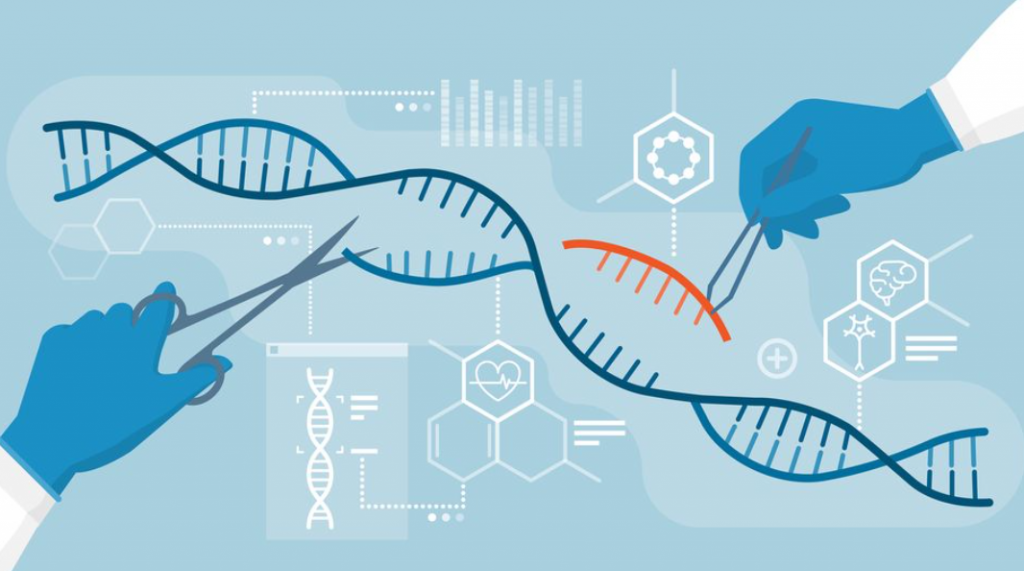On the 26th of July 1978, Louise Joy Brown, the first test tube baby was born. Nearly 50 years on, are we any closer to editing our imperfections and what are the implications?
What is genetic engineering?
Genetic engineering is the process of modifying an organisms DNA. Aside from helping couples who are otherwise unable to have babies, recent advancements in the field ranges from the eradication of malaria to the production of synthetic human insulin to reducing the risk of genetic diseases. The benefits of genetic engineering also extends beyond humans, with the development food crops that are resistant to extreme weather, ecological and soil conditions. An example of the technology used is Crispr CAS (Clustered Regularly Interspaced Palindromic Repeats), which edits an organisms genome by removing/adding/modifying DNA. The first babies born using Crispr CAS9 edited genes was born on 25th November 2018, suggesting we are getting closer to editing our imperfections.

The ethics debate
However, despite these benefits, the question remains: Is it ethical? Indeed, these technologies are beneficial to couples who are otherwise unable to have children, however, there is potential for this technology to be misused. The ability to select for certain genes has given rise to “designer babies” where features of interest can be selected for with other undesirable features selected against. While this can be beneficial in selecting against genes susceptible to disease, the fact remains that there are multiple ethical issues?
One major issue is the potential to increase social inequality. Due to the financial cost only the rich can afford this technology, increasing the gap between those who can afford it and those cannot. Further, we may also be creating a society where certain traits are seen as more desirable, resulting in discrimination towards those without the preferred features, aswell as a loss of diversity. Another concern is the issue autonomy and informed consent as it is the embryos that are being modified, questioning whether the parents have the right to make life changing decisions of their future children, especially if they are non-medical. Further, the long term consequences are largely unknown and could have side effects in the individual and future generations.
Conclusion
The ethics of genetic engineering are complex. Indeed, the possibility of advancement and improvement to health are massive, but the side effects and potential misuse is equally big and must be considered. Nevertheless, it is important that there is a balance between allowing for innovation and protecting human right.
Links
Guardian Research Department (2011). 1978: The First Test Tube Baby. The Guardian. [online] 2 Jun. Available at: https://www.theguardian.com/theguardian/from-the-archive-blog/2011/jun/02/guardian190-test-tube-baby-1978 [Accessed 1 Mar. 2024].
Mirage News (2023). Designer Babies & Ethics of Human Genetic Engineering. [online] Mirage News. Available at: https://www.miragenews.com/designer-babies-ethics-of-human-genetic-992678/ [Accessed 1 Mar. 2024].
Rose, B.I. and Brown, S. (2019). Genetically Modified Babies and a First Application of Clustered Regularly Interspaced Short Palindromic Repeats (CRISPR-Cas9). Obstetrics & Gynecology, [online] 134(1), p.1. doi:https://doi.org/10.1097/aog.0000000000003327.
This is a good blog, which effectively introduces the reader into the current applications of genetic engineering and provide a brief overview of its current benefits and potential ethical concerns.
You could use the remaining words to explain more broadly genetic engineering to the reader. Consider adding your personal reflection on ethical boundaries in genetic engineering. Try to support it with evidence if possible.